Brian Clegg's Blog, page 67
August 28, 2015
Don't hold your breath
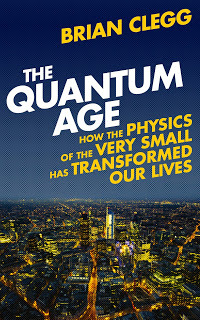 I dedicate a fair chunk of my book on the way that quantum physics is transforming our world,
The Quantum Age
, to superconductors. These remarkable substances with no electrical resistance and impressive magnetic properties are already supporting a range applications from MRI scanners to maglev trains, but what is always described as the 'holy grail' of superconductivity is a room temperature superconductor.
I dedicate a fair chunk of my book on the way that quantum physics is transforming our world,
The Quantum Age
, to superconductors. These remarkable substances with no electrical resistance and impressive magnetic properties are already supporting a range applications from MRI scanners to maglev trains, but what is always described as the 'holy grail' of superconductivity is a room temperature superconductor.The earliest examples had to be cooled within a couple of degrees of absolute zero (-273.15 °C), and even now they need either liquid helium or liquid nitrogen, depending on the type, to keep them cool enough. This is okay for specialist applications, but means they can't break out into everyday everywhere use. But if a superconductor could work easily at room temperature it would transform electronics and electrical products everywhere.
Hence the excitement whenever a new temperature high is announced. This happened recently when the simple compound hydrogen sulfide showed superconducting properties at just 203 K (-70 °C) - okay, not exactly room temperature, but nearly 20 degrees better than the best previous attempt. Immediately, as always with a new announcement, we got claims that room temperature superconductors are on the horizon.
It's possible, but there is a big caveat. Most 'high temperature' superconductors are fancy ceramics featuring the likes of thallium, strontium, copper, oxygen and bismuth. Hydrogen sulfide is suspiciously simple - and there's a reason. Because this was no ordinary H2S. It was compressed using pressures of around 150 gigapascals - that's around 1.5 million times atmospheric pressure. Not surprisingly, achieving this for appliances in the home is probably even less likely than superconductors requiring liquid nitrogen.
I don't want to be negative, though. All such discoveries are highly useful in the slow process of possibly reaching superconducting nirvana. But I wouldn't necessarily expect it any time soon. You can read more on the H2S superconductor here in Physics World.
Published on August 28, 2015 02:21
August 27, 2015
Why I want Jeremy Corbyn to become Labour leader
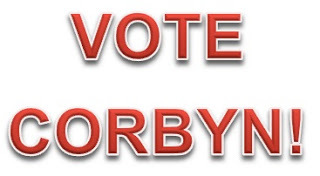 I will never know now if the Labour party would have weeded me out as a potential agitator if I had completed my application to be a supporter, because my political posts here have rarely been in support of Labour. Having said that I could say, hand on heart, I have voted Labour at three general elections (not all for Tony Blair), so it would have been highly unfair to have done so.
I will never know now if the Labour party would have weeded me out as a potential agitator if I had completed my application to be a supporter, because my political posts here have rarely been in support of Labour. Having said that I could say, hand on heart, I have voted Labour at three general elections (not all for Tony Blair), so it would have been highly unfair to have done so.I also am rather saddened by the way they appear pleased to have weeded out hundreds, if not thousands of 'Green Party supporters'. My suspicion is that a fair proportion of Green voters are actually Labour supporters who weren't happy with the way the party had gone and wanted to return to the fold. My suspicion is the majority of voters are not 100% committed to a single party, even if they don't float as much as I do.
Despite the fact that I may well have been excluded, as someone who is more often a right-leaning Lib Dem (cousin Nick insists, even now), I would be delighted if Jeremy Corbyn wins the election to become Labour leader. This is not, like a dyed-in-the-wool Tory because I want Labour to become unelectable. Instead it's for the same reason that I wanted Scotland to vote Yes in the independence referendum.
As far as I can see, British politics has become far too cosy. This is why detestable parties like UKIP have done so well. Because, despite the idiocy of a public school educated, ex-city trader claiming to be anti-establishment, the fact is that pretty well all of British politics has become too staid and establishment-like in nature. It needs a shakeup. I believe that an independent Scotland would have done that - and I believe that Jeremy Corbyn leading Labour is our next best hope of doing so. It might not be good for the Labour party, but it would be good for the country long term. (Short term it would probably mean another Conservative win in 2020, but short-termism is the bane of politics.)
Finally we would see real challenges to the government. Real alternatives. Many of them, I admit, would not be widely palatable. I gather the only Corbyn policy that has wide public support is re-nationalising the railways. And some of Corbyn's views are positively nutty (like women-only railway carriages), while others appear to verge on anti-semitism. But that's not the point. He will certainly shake things up. And we really, really need that in politics. Bring it on, Jeremy!
Published on August 27, 2015 02:24
August 26, 2015
What's wrong with authority?
 Recently I was berated on Facebook for appealing to authority. As it may not be obvious to everyone why this was a put down (as the picture makes clear it was), I thought it might be worth looking at the problem with authority in science - and why I wasn't actually falling for this failing.
Recently I was berated on Facebook for appealing to authority. As it may not be obvious to everyone why this was a put down (as the picture makes clear it was), I thought it might be worth looking at the problem with authority in science - and why I wasn't actually falling for this failing.Arguably the biggest issue with Ancient Greek science, an approach that spread its way through most of the medieval period, was the dependence on authority. Just as we still do in law cases, most classical natural philosophy was decided by argument rather than by experiment or analysis. If someone repeatedly won the argument on a topic they were regarded as an authority and in some cases - Aristotle is the most obvious example - considered a source of wisdom on pretty well everything as a result. Hence the infamous suggestion that women had fewer teeth than men because Aristotle said it was so, and no one bothered to check. (Actually I am sure plenty did check and found it to be wrong, but because they weren't Aristotle, they were ignored.)
This reverence for the word of Aristotle was shattered in science itself by the likes of Galileo and Newton, and thereafter it should not be good enough just to be an authority figure to be assumed correct on any topic. But it tends to still happen outside of science. A good example today of when we make a mistaken appeal to authority is when, for instance, we think that a Nobel Prize winning scientist has more weight outside their specialist field than do other people. There is no reason, for instance, to give weight to Linus Pauling's beliefs on the medical benefits of vitamin C, because it wasn't his area of expertise - but still people do.
However, this is quite different from preferring people with expertise as sources within their subject of expertise to a random person on the street. That is not an appeal to authority, it is just common sense. I'm not a scientist, I'm a writer with a very rusty physics degree, and a very slightly less rusty operational research masters. As such, I would never dream of putting forward my own theories in science. But if I want to describe a physical theory or idea, I will give more weight to the word of a well-established physicist than I would to the next person who sends me their new physics theory by email.
I get sent quite a lot of these off-the-wall physics theories. I would not use those in one of my books, except to raise an eyebrow at it. Instead I put across ideas coming from well-established physicists (if I'm writing about physics - not if I'm writing about health). This is not using an appeal to authority, it's the only sensible thing to do as I can't possibly test out or check their theories myself. However, if I used Richard Feynman's viewpoint to provide expertise on music or Niels Bohr on literature, then I would indeed be incorrectly appealing to authority. Which would be wrong (as anyone who knows what Feynman's taste in music was would probably agree).
In the case that started this piece off, I had referenced another famous physicist George Gamow on a physics matter, so this was not the case. It's easily done, but we shouldn't confuse a flag that we are accessing expertise with an appeal to authority.
Published on August 26, 2015 03:07
August 25, 2015
Is this the best of SF?
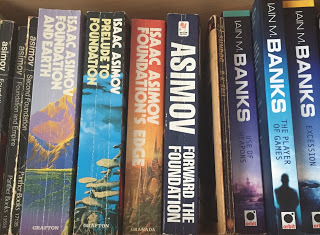 SF greats, ancient and modernI was interested to note a debacle started by a US list of top 100 science fiction and fantasy books. We'll come back to this furore over the suggestion that many of these books were 'shockingly offensive' in a moment, but first a couple of comments about the list itself.
SF greats, ancient and modernI was interested to note a debacle started by a US list of top 100 science fiction and fantasy books. We'll come back to this furore over the suggestion that many of these books were 'shockingly offensive' in a moment, but first a couple of comments about the list itself.To me it seems a mistake to conflate fantasy and science fiction - where most of their SF choices seemed sensible, I wouldn't have included over 50 per cent of the fantasy, which makes me suspect that there should be two separate lists.
If we just concentrate on the SF books, there were inevitably some ridiculous omissions. No John Wyndham, for instance (probably reflecting this being a US list). No Alfred Bester, James, Blish, Fred Pohl, Cyril Kornbluth or (if you want to be more obscure) no E. F. Russell. However it wasn't a bad list overall - no one will ever agree with everything in such a collection.
So what about the moaning article in the New Statesman (pointed out to me by Niki Gamm), which berates this list? One complaint in the article is that most of the SF books are pre-1990s. I think this, to be honest, is entirely reasonable. I struggle to name more modern authors other than Banks and Stephenson who are truly great. I do wonder if it's because a lot of the best SF is about surprising the reader with really original ideas, most of which had been played out by the 1980s.
The other complaint, the one that makes the books in the opinion of the article's author 'shockingly offensive' is that a lot of them appear sexist. I'm sorry, but to complain about this is revisionist nonsense. You can't apply the standards of the day to the past. You might as well take offence at the sexism, racism and anti-semitism in Dickens and Shakespeare. I'm afraid it shows little imagination in the reader if they can't read a book in the context of the time in which it was written.
You might as well moan that the science and technology in old science fiction is pretty well always wrong. Of course it is. And it certainly can be amusing. For instance, Blish notes that it's impossible for electronics to work near Jupiter because the gravitational pull is so strong it would crush the valves (vacuum tubes). However it would be silly to downgrade the status of a story just because it contains such an issue. It's certainly true that there are some pre-Enlightnment II books that I find it difficult to read now because science, sexism or racism issues are so badly handled - but that doesn't apply to many in that top 100 list on the SF side (I can't comment on the fantasy).
I think it's great that we don't have the same problems with sexism, racism etc. in modern writing as used to be the case. But to arbitrarily dismiss something written before attitudes changed simply because it fits with the values of the present seems a patently naive view.
Published on August 25, 2015 02:56
August 24, 2015
Can you apply science to make writing better?
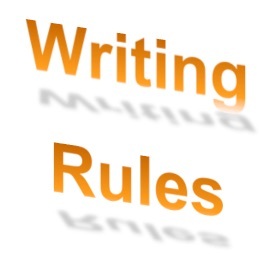 Thanks to Dr Phil Langton of Bristol University for bringing to my attention this interesting piece in Times Higher Education by Yellowlees Douglas on the way that 'understanding the reading brain can help academics and students improve [their writing skills].'
Thanks to Dr Phil Langton of Bristol University for bringing to my attention this interesting piece in Times Higher Education by Yellowlees Douglas on the way that 'understanding the reading brain can help academics and students improve [their writing skills].'Douglas, an associate professor of management communication (no, really, they exist) at the University of Florida argues that we have a lot of data on the reading brain - how we take in information from the written word - and that we can make use of that to provide a series of rules for 'science-based writing' which could be taught in secondary schools to improve the quality of writing.
I don't doubt that we could do more to teach writing skills, but to my mind this is a craft, and benefits as much from practice and feedback as it does from a framework of rules, which the best writers break with ease anyway. However, there's something more dangerous here, which is the assumption that academic studies give us a picture of the real world.
Douglas points out that 'Readers best recall the last quarter of lists, sentences, paragraphs and documents', and I am sure that is true when it comes to students doing tests in some psych lab. However, in the real world I would suggest few people read in the same way they would when undergoing a lab-based test. I, for one, rarely read every word in a document unless it's either a contract or one of my books I'm proof reading. (If I'm honest, I don't think I read every word in Douglas's article.)
It's not for nothing that journalists put such a huge emphasis on the first paragraph, rather than the last as Douglas seems to. Because it's often the case when reading an article in a newspaper we don't get past the first paragraph - so it's essential in good writing in that kind of context to get a strong hook in the first paragraph, and a clear indication of what is to come. But the approach would be totally different for a literary novel. We read different types of material in totally different ways - but the most common thing, whatever the material, is that we tend to skip read. Many of us don't read word for word.
When, for instance, I get sent a press release, as I often do, I will usually read the title, some or all of the first paragraph and scan the rest. The whole thing takes about 20 seconds. That's it, unless it has really grabbed me. Delete already pressed. To be honest, even when I read a novel I tend to skim-read if it gets too descriptive and arty-farty.
So to suggest that you can build good writing on a rule like 'make sure your most important points are in the last quarter' (not explicit in the article, but implied) seems to be a product of a sterile university idea of what reading is like, rather than the real thing.
I'm not an arty type. I don't claim writing is purely an artform that has to come from the soul and can't benefit from technique and good writing skills. Like any craft, technique and skill are immensely important. But I'm highly sceptical that 'science' in the sense intended here can do a huge amount to improve the quality of the written word.
Published on August 24, 2015 03:08
August 15, 2015
Would you trust TrustPilot?
 The other day, for complicated reasons, we got locked out of our house. Knowing it would be a bit of a rip-off, but needing help, we phoned a company with the website mylocksmithinswindon.co.uk on a Swindon number. They answered quickly and I agreed to go with a pretty hefty hourly rate, but no call-out charge. As it turned out, this 'local' firm appeared to be based in Birmingham, but they promised me the locksmith would arrive within the hour.
The other day, for complicated reasons, we got locked out of our house. Knowing it would be a bit of a rip-off, but needing help, we phoned a company with the website mylocksmithinswindon.co.uk on a Swindon number. They answered quickly and I agreed to go with a pretty hefty hourly rate, but no call-out charge. As it turned out, this 'local' firm appeared to be based in Birmingham, but they promised me the locksmith would arrive within the hour.It was a nice sunny day and we didn't mind sitting out in the garden for the 2 hours it actually took. The person who came did a great job and got us inside in under 10 minutes. So a mixed effort, especially when the bill came and it turned out that the price quoted was without VAT, which I thought was illegal, or at least highly dubious, for a consumer quote.
Shortly after I got an email asking to review them on something called trustpilot.co.uk, which I thought was worthwhile. I gave them 3 stars out of five, pointing out the delay and the unexpected VAT, but balancing it with the good service.
A couple of weeks later, I got an email from trustpilot telling me that they needed me to scan my invoice to prove I was a customer before they would show my review. I couldn't be bothered, didn't know where the invoice was and anyway didn't want to reveal to TrustPilot some of the information on what should be a confidential document. I told them they weren't a proper review site if they put hurdles in the way of negative reviews like this. What's interesting is if you look at the review page for the company in question (which turns out to really be called rightio.co.uk) almost all the reviews are positive, but occasionally (before they delete them) you will see ones like mine which don't show the review but look like this:

So what it looks like is if you go to TrustPilot you will see overwhelmingly positive reviews, because as soon as someone posts a negative review the company can query it and TrustPilot puts ridiculous obstacles in the way of allowing a negative review through. Would you trust TrustPilot?
Published on August 15, 2015 03:27
August 13, 2015
Mystery madness
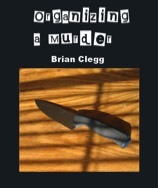 For years I've struggled with finding a robust mechanism to make it possible to download ebooks from my website. Finally I've got something working*, and to celebrate this (and help parents get through the school holidays), I've reduced my ebook Organizing a Murder from £9.99 to £2.99 until the end of August.
For years I've struggled with finding a robust mechanism to make it possible to download ebooks from my website. Finally I've got something working*, and to celebrate this (and help parents get through the school holidays), I've reduced my ebook Organizing a Murder from £9.99 to £2.99 until the end of August.This all started many years ago when I helped run a youth group. One of my contributions was to script mystery evenings where the young people had to solve murders or undertake treasure hunts. There were those 'murder mystery party' kits you could buy, but they were very expensive, and they involved role play for a specific number of players. I needed something without the complexity of role play and that could be played as an individual or teams.
Some of the mysteries/treasure hunts have found their way into this ebook - others were written specially for it. It was a pleasure to put together - very different from writing popular science.
There's a whole range in there (12 in all), some suitable for kids, others requiring adult levels of working out. They've been used in parties, dinner parties, team building exercises for business or just to kill a couple of hours when the kids are getting irritating. I've never been able to put the ebook on Kindle, because a requirement is that you can print out the pages, as there are clues, evidence and all sorts of bits and pieces in each mystery which are distributed around the location before the event to give a treasure hunt aspect, as well as the usual deduction.
You can find Organizing a Murder here on my newly expanded 'fiction' section on my website. These are some comments I've had from people who've bought it:
”This is a great book! I've used it to organise several kids parties and they loved it!” - Katherine Kelly, author of Red Rock"Plenty of choice, great to keep everyone occupied - thanks very much.""Great product!""Fantastically clearly set out and very easy to absorb. I'm really getting ahead with [the party] now, thanks to you!""Many thanks - delighted!""Wonderful, entertaining product.""Easy to use, great resource for all ages.""Wonderful book - many great ideas."* For those technically inclined who want to know how I'm doing it, my website is built with RapidWeaver. I was already using the PaySnap stack for taking payments, but I've added the RapidLink plugin which handles the downloads. Getting them to work together isn't documented, but is straightforward.
Published on August 13, 2015 02:28
August 4, 2015
Not even once in a blue moon
I'm reissuing this post from way back in 2009, as the media, including the BBC (which ought to know better) have been going on about there being a blue moon last month. No, there wasn't. See below.
 I've seen lots of Twittering over the last few days suggesting that there is going to be a blue moon tonight. Sorry, guys, there isn't.
I've seen lots of Twittering over the last few days suggesting that there is going to be a blue moon tonight. Sorry, guys, there isn't.
Take it away Terry Moseley of the Irish Astronomical Association:
Image from Wikipedia
 I've seen lots of Twittering over the last few days suggesting that there is going to be a blue moon tonight. Sorry, guys, there isn't.
I've seen lots of Twittering over the last few days suggesting that there is going to be a blue moon tonight. Sorry, guys, there isn't.Take it away Terry Moseley of the Irish Astronomical Association:
There has been a false idea circulating that this will be a 'Blue Moon' because it's the second Full Moon in a month! That erroneous description started when Sky & Telescope magazine wrongly interpreted an old New England Farmer's Almanac as calling the 2nd Full Moon in a month a 'Blue Moon'. They later admitted that they had got it wrong, and published a correction, but not everyone saw the retraction.Quick update after some comments on Facebook - I've checked in the OED, and they have a reference to 'blue moon' being used in this way in 1821, so the Krakatoa event isn't the origin of the term. It doesn't change the fact that tonight isn't a blue moon, though.
A 'Blue Moon' means a very rare and unpredictable event, and it arose after the great Krakatoa volcanic eruption in 1883 blew so much fine volcanic ash into the upper atmosphere that for a while the moon did sometimes appear blue. But that was almost a one-off event, and so the term 'once in a blue moon' means 'hardly ever'. Whereas there are actually two full moons in the same month every few years or so!
So it's not going to be a 'Blue Moon', and in fact if anything, it will appear partly red!
Image from Wikipedia
Published on August 04, 2015 02:49
August 3, 2015
Capital city value eating
 I will never make a restaurant critic like my friend Matthew Fort (that's a terrible photo of him on the Guardian page, btw), in part because I have the kind of unsubtle tastes that mean that anything 'smothered in barbecue sauce' attracts my instant attention, but I just wanted to recommend two discoveries of American restaurants in capital cities that are well above the average TGI Friday/Hard Rock Cafe tourist food quality and yet not exorbitant despite being in high end locations.
I will never make a restaurant critic like my friend Matthew Fort (that's a terrible photo of him on the Guardian page, btw), in part because I have the kind of unsubtle tastes that mean that anything 'smothered in barbecue sauce' attracts my instant attention, but I just wanted to recommend two discoveries of American restaurants in capital cities that are well above the average TGI Friday/Hard Rock Cafe tourist food quality and yet not exorbitant despite being in high end locations.In London, I have been highly impressed by Joe's Southern Kitchen and Bar in Covent Garden (apparently there is also now one in Kentish Town). Excellent chilli cup and great 'Southern fried bird'. The wings are great too. If you want to be more exotic there's blackened catfish fillet that took me back to New Orleans and an impressive sounding vegetable gumbo (not tried that). The ambiance is murky but fun and the music can be overloud (my 21-year-old daughter said this, so it's not just me being an old fogie), but a great meal right by one of London's top tourist destinations.
 In Edinburgh, I ate last week at SYGN. Just off the West End of Princes Street, tucked away in a cobbled courtyard opposite a French restaurant that is straight out of Le Touquet, this is a very design-focussed and fresh environment - absolutely everything is branded. They have a great range of really interesting cocktails (plus some good non-alcoholic stuff: I recommend their homemade ginger beer). Their starters were absolutely outstanding: the best wings I can ever remember having and hand-made nachos with pulled pork that were stunning. It may be because we were so stuffed with these, but we found the mains fine but not quite as remarkable. Still well above average, though. All in all well worth a visit - you even get free use of a ping-pong table.
In Edinburgh, I ate last week at SYGN. Just off the West End of Princes Street, tucked away in a cobbled courtyard opposite a French restaurant that is straight out of Le Touquet, this is a very design-focussed and fresh environment - absolutely everything is branded. They have a great range of really interesting cocktails (plus some good non-alcoholic stuff: I recommend their homemade ginger beer). Their starters were absolutely outstanding: the best wings I can ever remember having and hand-made nachos with pulled pork that were stunning. It may be because we were so stuffed with these, but we found the mains fine but not quite as remarkable. Still well above average, though. All in all well worth a visit - you even get free use of a ping-pong table.Neither venue is as cheap as McDonalds or even Five Guys - but comparable with the likes of TGI on price while streets ahead on the food.

Published on August 03, 2015 02:12
July 24, 2015
Library heresy
 Not your typical library
Not your typical library(John Rylands Library, Manchester)Libraries are a touchy subjects amongst us authors, especially at a time when they are endangered. We love our libraries and anyone who suggests closing them risks an authorial tarring and feathering.
Yet there comes a point with any technology and distribution method where there's a danger of clinging onto the past because it's what we grew up with, even if it's not right for the future. And I'm seriously wondering if the time has come to take the same attitude to libraries. Are we like the people who tried to cling on to gas lighting when it was obvious electricity was the way forward?
Let's start with the good things about libraries, particularly for authors:
Those who use libraries also buy more books than the average person - or so conventional wisdom has it. I haven't been able to find any good research to this effect (please let me know if you can point me to it). The closest I have come is this which is a) 3 years old, b) US, c) is a survey, not controlled research, d) says that library users buy on average 3.2 books a month but doesn't put it in context.In countries like the UK authors get a payment called PLR to compensate for library lending (other countries like the US don't).Libraries make books available to those who can't afford to buy them.Libraries are useful places for research/working quietly.Mobile libraries are a useful lifeline for old people in remote locations.On the downside:Fewer and fewer people use libraries.Libraries are not always convenient to get to.Libraries have become too 'everything for everyone' - they seem to have more other things than books these days.Libraries don't have the impact they used to.The majority of library users who borrow books only borrow fiction. Libraries are more about entertainment than education.I really think we ought to start from scratch. To say what we want libraries to do, and how they can best address those needs. It's highly likely that the current library structure is not the answer to addressing those needs. I am not saying we just get rid of libraries, but rather we see if a structure that was designed for a Victorian need could not be re-worked for the twenty-first century.
This would be a task that would take a working group some time, so there's no way I can reproduce the effort required in a blog post. But here's a few of the kind of things I would consider. Amongst the needs:Giving people access to books and getting them used to owning and buying books.Giving people access to information.Giving people somewhere quiet to study and access the internet.Giving old people in remote locations a focal point and access to books.At the moment spending on public libraries in the UK is about £1 billion (see this report). The temptation is always to cut this, especially where local authorities are squeezed and able to do so. This money should be spent effectively, and where possible there should be multiple use facilities, so that there isn't a double spend on infrastructure.
A few thoughts on these. £1 billion sounds a lot, but that's only around £17 per head. So we can't issue everyone with £100 of book tokens each year, much though I would love to. But I do think some of the budget should go to giving people a way to buy books at a discounted rate, because book buying gives the books a much greater personal value than just borrowing - ownership is powerful psychologically.
Looking beyond access to books, increasingly, the traditional library building may not the best way to provide most of the needs. Perhaps we should get rid of our general purpose library buildings, keeping only specialists like the John Rylands above, re-investing the cash in library services, and finding ways to provide books more directly, plus giving access for information/study needs via other buildings (schools and universities spring to mind, but there are many other opportunities).
The worst possibility, though, is what we have at the moment - trying to prop up the Victorian system as funds reduce and not looking at ways to genuinely transform the library concept.
I honestly think if the right people could be persuaded to take a step back and look creatively at the problem they could come up with something much better, yet not requiring vast amounts of extra funding. Don't we owe that to the public?
Published on July 24, 2015 02:54



